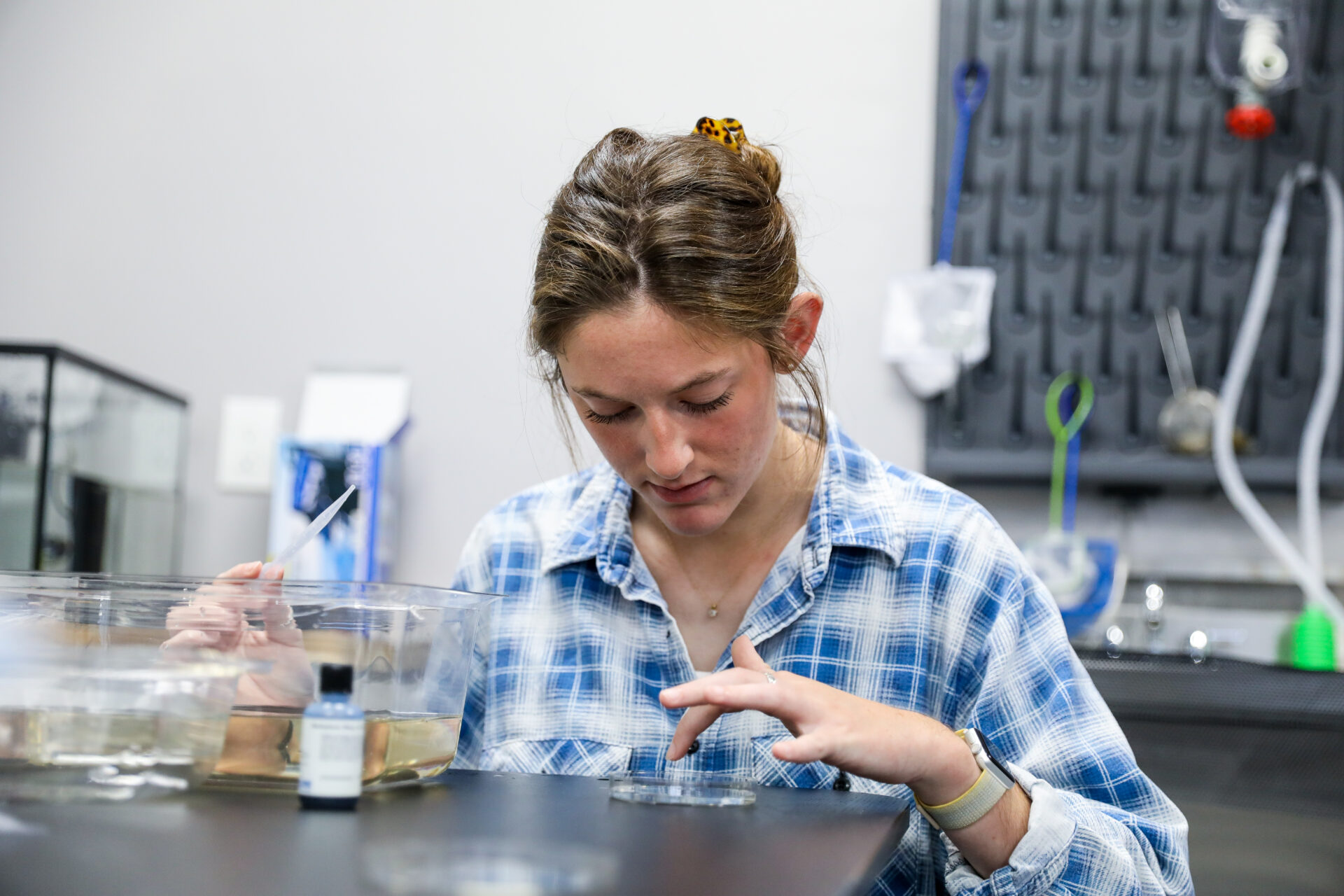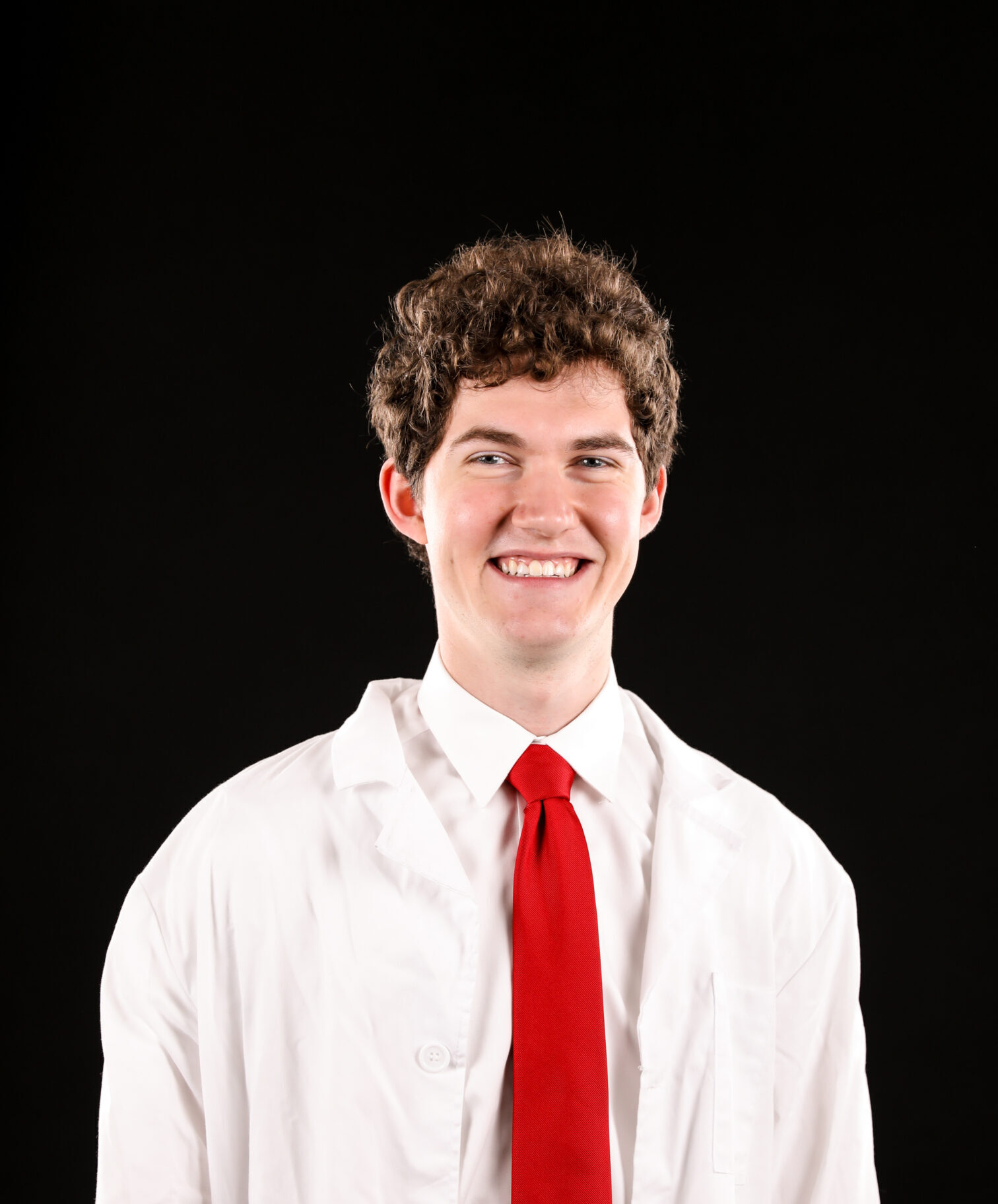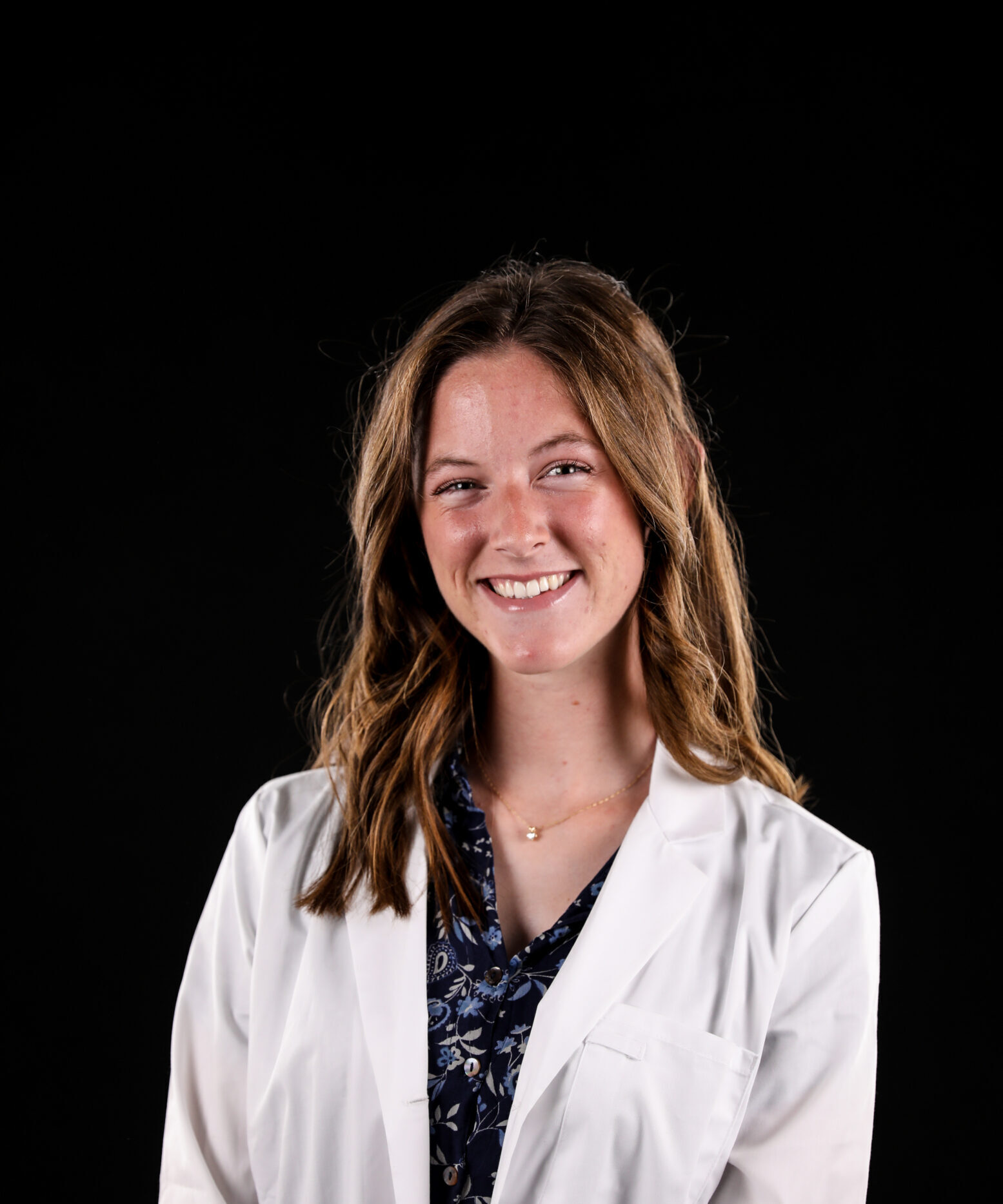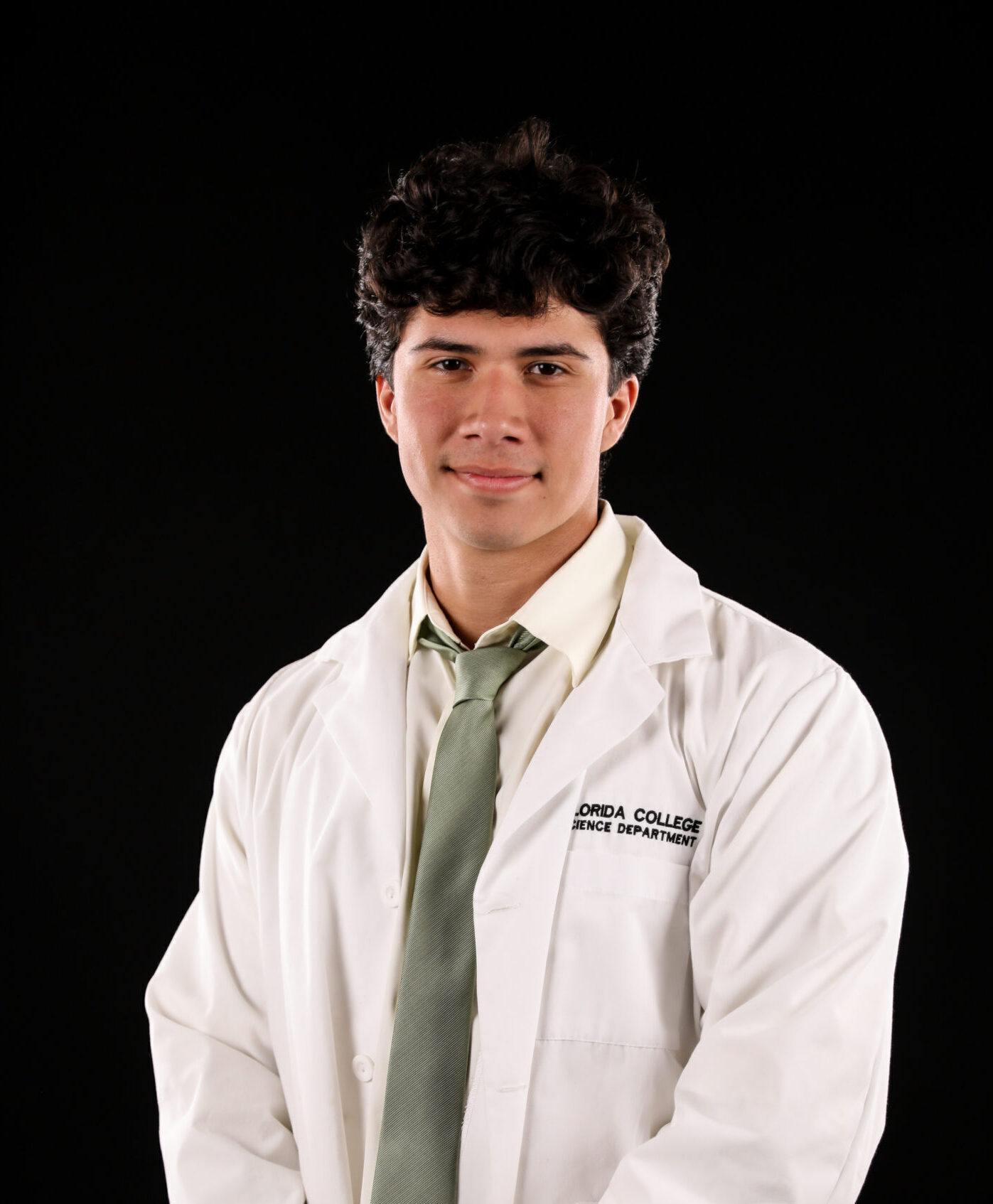
Red Tide Research Presented by Florida College
March 27, 2023
According to the Florida Fish and Wildlife Conservation commission, over the past month the red tide organism, Karenia brevis, has been detected in 114 samples offshore of Southwest Florida, and one sample from Northwest Florida. Hurricane Ian, which made landfall in the Gulf of Mexico in late 2022, aggravated the algae, bringing red tide to our shores much earlier than in years past. Harmful algal blooms occur nearly every summer along the nation’s coasts, often turning the water a deep red. A red tide results from the rapid growth of microscopic algae, which can produce toxins that have harmful effects on people, fish, marine mammals, and birds. Red tide can result in varying levels of eye and respiratory irritation for people, which may be more severe for those with preexisting respiratory conditions, such as asthma. The blooms can also cause large fish kills and discolored water along the coast.
Because of the rampant presence of red tide on Florida’s coast, the Florida College research lab offers students the opportunity to participate in an ongoing scientific investigation to explore the effects of the microorganisms disrupting beaches all over the state. Beginning in the fall semester of 2022, Dr. Andrew Stafford, math and science department chair and faculty, launched this project to enable students to research and learn about a relevant issue through invaluable, hands-on experience in the biology lab.
For the project, student researchers are studying the effects of red tide on the small, freshwater fish Danio rerio, commonly called “zebrafish.” The common adverse effects caused by red tide like respiratory problems, irritation, and loss of sea life, come from a neurotoxin called brevetoxin . Due to Tampa’s proximity to the Bay, it is at exceptionally high risk of exposure to the toxin. To uncover some of brevetoxin’s potential effects on humans, Dr. Stafford and the student researchers are studying zebrafish because of their genetic similarities to humans.
“We are exploring the potentially harmful effects of the toxin produced by red tide algal blooms on zebrafish’s behavior, cognition, and development. The research will benefit our local community by increasing knowledge of effects of the exposure to red tide toxins,” says Dr. Stafford.
As part of this unique experience, our student research team attended the Florida Undergraduate Research Conference at St. Thomas University in Miami this past February. This conference attracts hundreds of biology and toxicology professionals annually, exposing our students to field experts. Each student presented a visual aid showcasing their findings and work in the lab. Their presentations utilized critical analysis, writing, and communication skills. Besides presenting, students listened to lectures from field experts on scientific writing and research methods and explored options for graduate schools and other occupations after graduation.
In addition to the hands-on lab work and conference attendance, Dr. Stafford also seeks to publish these students’ findings in a scientific journal article. This unique opportunity would provide a way for Florida College students to distinguish themselves from their competitors in applications after graduation.
“Being published in a scientific journal is extremely beneficial to students when they apply to school or jobs after graduation because a published research article is a tangible piece validating any work in a lab. This level of validation is a big advantage for jobs in the industry, graduate school, and medical school,” says Stafford.
The Florida College research lab will continue to offer this research study for students in the future. Dr. Stafford hand-selects these students based on stellar academic performance. Each student was assigned a different portion of the experiment to oversee based on personal interests and skill sets. Meet the student research team for the 22-23 academic year:

Truth Clevenger
Junior, Liberal studies: Pre-Med
Truth is studying how brevetoxin affects cognition. He runs experiments on the zebrafish to discover if the toxin harms their memory.
“As a junior pre-med student, I’m always looking for the best way to strengthen my medical school application. Medical schools are looking for undergraduates with a variety of experiences that will enrich their student body. Working in Florida College’s biology research lab has been just the experience I needed to fill the gaps in my application and prepare me for medical school. I have benefited tremendously from learning how to write scientific articles, organize data obtained in a laboratory, and design effective research presentations. I am so thankful for the opportunity to work with Florida College in biological research.”

Jessica DeRemer
Junior, Educational studies with a concentration in biology
Jessica breeds more zebrafish for the continuation of the experiments and research. She also studies brevetoxin’s effect on development by exposing samples of the embryonic population to the toxin.
“In the zebrafish lab, I am running an embryology study on the effects of brevetoxin (red tide) on organisms in utero. I also breed our population of zebrafish so that the other students have plenty of fish to continue running their experiments. This lab experience is so valuable to me, gaining experience working in this field and giving me an invaluable boost on my resume. I hope to have a career in the zoological field working with dolphins and other marine mammals. The marine mammal training field is very competitive, and anything on your resume that can set you apart from other applicants is extremely beneficial. In addition to our experience running this lab, we hope to have our research published and presented at major scientific research conferences around the country, which is so exciting! I cannot believe that I am being able to contribute research to published scientific work and in a place that is fully focused on God and helping us grow closer to Him.”

Halle Martin
Freshman, Biology
Halle researches different types of herbs and supplements that have been shown to affect neurocognitive ability, specifically in zebrafish, hoping to determine which herbs could provide remediating effects for brevetoxin poisoning. She is writing a literature review on this subject and will begin experimentation on the zebrafish, using herbs in different behavioral tests to assess changes in cognitive ability.
“I plan to pursue a career in botany research, so this project has been a great opportunity to begin learning the processes of research and experimentation, especially since I am researching from a botanical aspect.“

Jakob Paz
Junior, Kinesiology
Jakob is studying how the motor system and muscles are affected by brevetoxin by running experiments to observe the fish’s swimming capabilities after exposure to the toxin. He also dedicates his time to research and writing for the scientific journal article.
“My role in the zebrafish red tide project has been largely centered around writing a systematic review of literature on the benefits of zebrafish in toxicology studies. I have additionally been active in developing grant proposals and have recently worked on creating a research visual aid that will be presented at the annual Florida Undergraduate Research Conference. Working alongside my colleague, Truth Clevenger, and under the oversight of Dr. Stafford has been a great blessing that has allowed me to greatly increase my research experience, which is critical in my pursuit of attending an exercise physiology graduate program. I have thoroughly enjoyed participating in this endeavor and look forward to continuing the lab’s work in further experimentation and research for the remainder of my time here at Florida College.“
